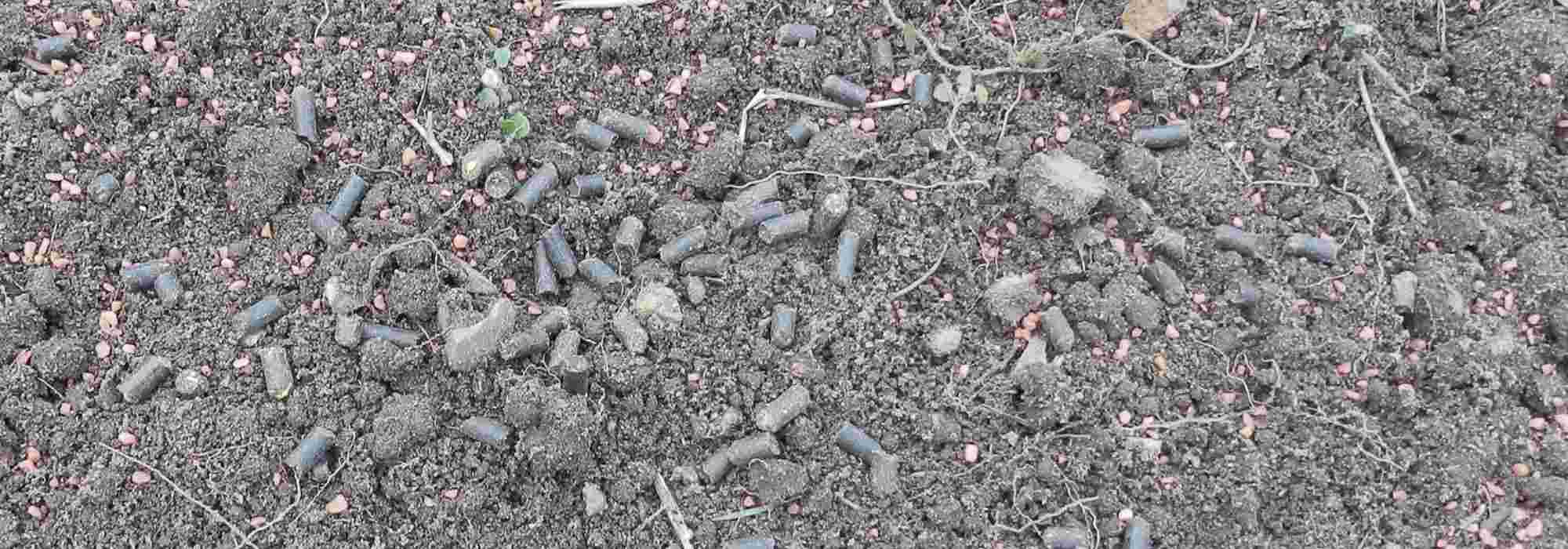
Pelleted manure: how to use it well in the garden?
At planting or as maintenance
Contents
Whenever it is not possible to spread fresh horse manure in the garden, granulated manure provides an attractive alternative. This natural amendment is essential for enriching the soil of your vegetable garden, orchard or ornamental garden. It helps fertilise the soil with minimal effort, supplying nutrients essential to the growth of all plantings (trees and bushes, flowers, fruits, vegetables and lawn). Practical and very easy to use, it is applied at planting and for maintenance, mixed into garden soil or into the potting mix of plants grown in pots.
What are its characteristics? When and how to use dehydrated granulated manure? Everything you need to know about this highly versatile organic fertiliser!
What is pelleted manure?
Granulated manure is an organic fertiliser made from a blend of dehydrated animal manures (poultry, horse and cattle manure). It may be supplemented with seaweed, ground roasted horn, blood meal and bone meal. We recommend choosing 100% natural dehydrated organic manure suitable for organic farming such as our Or Brun Granulated Manure Fertiliser, containing no synthetic chemicals, no colouring and no antibiotic residues.
What is dehydrated manure used for?
Pelleted manure is rich in organic matter and nutrients.
Once spread and mixed into soil, pellets gradually diffuse nutrients (nitrogen, phosphorus, potash, magnesium) and trace elements (calcium, copper, zinc, cobalt, sulphur, molybdenum, boron, iron). By breaking down, this natural, animal and/or plant fertiliser nourishes soil sustainably, regenerates humus and promotes plant growth by improving soil quality.
In addition to these benefits, it lightens soil, aerates it and helps it retain water better, while promoting fauna and microflora essential to soil health.

Discover our pelleted manures !
Why is it good for the garden?
Dehydrated manure pellets are useful if you do not have the option to spread fresh manure in your garden. Very versatile, they are an ideal ally for gardeners.
Advantages of pelletised manure :
- Breaks down quickly and easily into soil
- Economical to purchase
- Pelletised form makes dosing and spreading easier
- Unlike fresh manure, dehydrated manure is odourless (and therefore better suited to urban gardens!)
- Practical, easy to handle and ready to use, unlike fresh manure which requires greater caution
- Easy to store and suitable for small gardens, balconies or terraces
- Releases nutrients over a long period
- Improves soil structure in the long term
- Suitable for organic farming
- This natural soil amendment is an excellent fertiliser
- Suitable for all in-ground crops (trees and bushes, flowers, herbs, roses, hedge plants, climbing plants, fruit, vegetables and lawn) in vegetable plots, orchards and ornamental gardens.
- Can also enrich potting mixes for plants grown in containers, window boxes or pots
Read also
Nourrir le sol naturellementWhen and how to use it?
Pelleted manure is used almost all year round, from February to June and from September to December. Fertilisation is best done in autumn or early spring. It is used at planting or for maintenance once a year.
How to use it?
Incorporate by forking, raking or digging into garden soil or into potting substrate for potted plants. Then water.
What dose per m2 ?
Before anything else, you must take into account condition of your soil (newly created beds, brought-in soil, soil fertility...). Pelleted manure is sold in 10 kg or 20 kg bags. It can be applied at 1 kg/m2. These quantities are indicative and therefore variable; they can be increased slightly without risk given the non-chemical nature of this fertiliser.
→ Find on our online shop, our full range of natural manures and soil amendments
- Subscribe!
- Contents































Comments